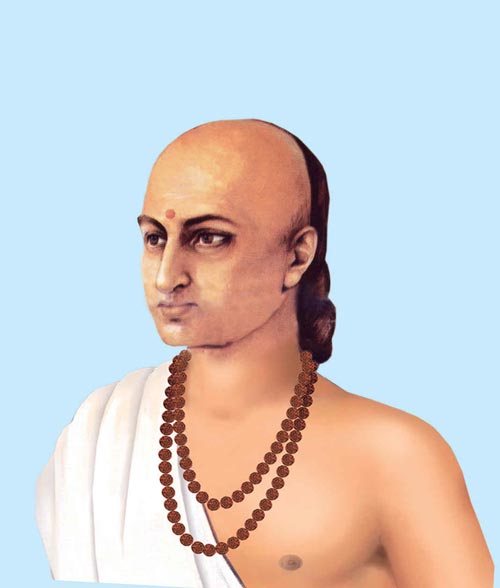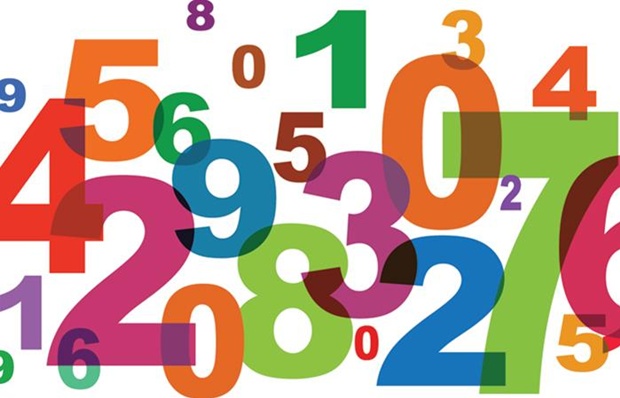Mathematics play an undeniable role in furthering of our knowledge in the all fields concerning rigid logic, but the question that continues to haunt mathematicians and philosophers alike is whether it something that we have come with with in order to explain the way things work, or is the hidden language of the universe that always existed even before it was formally recognized? In order to understand what it really is, let us take a few steps back and look at how numbers came into existence.
HISTORY OF NUMBERS

It is a well known fact that the number zero was first created by mathematician Aryabhatta, whereas the digits 1-9 were made by several cultures, Arabs being the earliest among others such as the Mayans and the Chinese.Before numbers came into the picture, ancient people used strokes to denote quantities that were larger than unity, which grew increasingly tedious and time consuming with larger numbers. Numbers, in essence, solved a specific purpose of counting things and in an efficient manner, which led to the foundation of several branches of mathematics widely used today.
To put it a little more mathematically, number systems enabled us to represent quantities using a shorter space i.e. a number n cab be represented using digits. Such was not the case with the default number unary number system, where the number of characters increased linearly with the number.
THE IDEA BEHIND NUMBER SYSTEMS

Human beings were equipped to compare things qualitatively even without the aid of these tools. For e.g. we need not use mathematics to understand whether or not certain objects are heavier than others(within practical limits, of course), it can simply be felt. By virtue of having senses, we are able to tell heat from cold, loud noise from a faint one and a myriad of other sensory experiences. However, there was a limit to all of this.
- We couldn’t quantitatively compare two entities, and define the extent of one quantity in relation to another.
- Also, we couldn’t compare quantities beyond our intuitive grasp. For e.g., if we were to compare the number of atoms in the Atlantic Ocean to the stars in the Milky Way, without the aid of any prior research, the sheer size of either quantity is sure to baffle us.
This is why numbers came into the picture. Each unique quantity was assigned a specific label but only up to a certain limit, depending upon the base(9 for decimal). For larger numbers, the existing digits were arranged systematically to cover all possible quantities in logical progression. This eliminated the need for learning digits beyond the existing ten. Another important aspect of number systems is its highly abstract nature that separates it from the real world. It systematically eliminated the need for defining the “what” of it, in order to hold some meaning. For e.g. 5 holds meaning even when we are not using it to quantify a real life object. But what then is 5? Can it be defined as something that precedes 6 and exceeds 4? Yes, but it can also be labelled as something that is half of ten. We can clearly define that any number x can be defined in an infinite number of ways, but only in relation to a different number.
So how numbers were formed?
We know for a fact that there isn’t any number on the number line that is “more important” than the other, and hence it cannot be said that 1 came into existence before 3 or vice versa. Everything came into the picture simultaneously and as a consequence of one another, yet it is something that we created which miraculously reflects larger truth.
WHY NUMBERS WERE BOTH INVENTED AND DISCOVERED
Mathematics is modeled upon the universe, and vice versa. It finds patterns in chaos that helps us connect two seemingly random events as a part of one logically sound system. To understand why it is both an invention and discovery, let us understand what it is in the first place? Is isn’t a collection of number or rules, rather an abstract, yet sound system that is described with the aid of devices such as numbers, variables and rules.
Mathematics can be seen as invention, due to the fact these numbers,variables, rules and their visual representations was created by human beings and didn’t exist until a long time until it was penned down by some geniuses. At its heart, it uses existing axioms(verified and proven) and extends it further into theories.
However, the underlying rules they express or use to express, are some fundamental truths as to how things work, and is as old as the universe itself. The earth moved around the sun, even before Galileo discovered it, and so were the implications of mathematics. In understanding those rules we are, in a way, discovering it.
See also:
